
For over a century, growing recognition of the historical inaccuracies and blatant cultural misrepresentations embedded in the traditional narrative of American Thanksgiving — which often gloss over the brutal impact of colonization on Indigenous and Native communities — has led to calls to reassess how the holiday is celebrated, if at all.
This is something that Brad Lopes, who is an Aquinnah Wampanoag citizen as well as the Director of Wampanoag and Indigenous Interpretation and Training at Plimoth Patuxet Museums, located in Plymouth, Mass., thinks a lot about on both a personal and professional level.
“I do not celebrate ‘Thanksgiving,’ although a harvest feast around the same time the federal US holiday takes place has occurred in family history,” Lopes said. “However, this is a tradition for Wampanoag families and still is for many of us. During this period, I spend time reflecting and engaging in remembrance and mourning practices, taking time to visit historical locations associated with King Philip’s War and our history.”
The Plimoth Patuxet Museums, which has been in operation for over 75 years, was founded by Harry Hornblower and its aim is to "tell the story of the English settlers, popularly known as Pilgrims, who landed in Wampanoag Homelands in 1621,” according to Lopes. To accomplish that mission, the museum shares information through enclosed exhibits, “four history sites that use a variety of interpretation techniques” that represent the time period between 1621 and 1627, and a recreation of the Mayflower, fittingly called the Mayflower II.
In order to tell the complete story of the English settlers, however, the perspective of the Native Americans whose land they colonized is essential, which is why the museum founded the Wampanoag Indigenous Program or WIP, 50 years ago. It pushes back on the narrative that the first Thanksgiving was a happy meal between the Pilgrims and the Wampanoag.
“I think there are dozens of harmful discrepancies, disparities and stereotypes that have been romanticized by the mistelling of the Thanksgiving story and the use of imagery that suggest historical truth where there is none,” Lopes said, noting that the story itself is harmful because it only promotes the "ongoing process of settler colonialism."
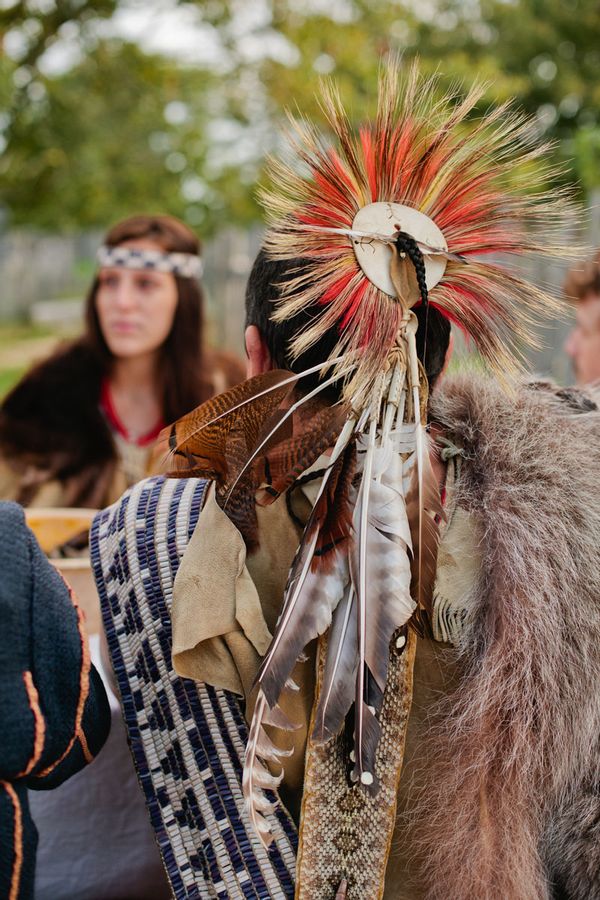
Essentially, these English settlers “were practicing a Christian Separatist Thanksgiving to express their gratitude for surviving in our homelands” and it was a meal packed with polarizing political leaders, including Captain Myles Standish — the military adviser for Plymouth Colony who had already murdered Indigenous peoples in the area — and Massasoit Ousamequin, the sachem or leader of the Wampanoag confederacy whom, as Lopes explained, is a contentious figure among many Indigenous people who think he “should not have assisted this fledgling group of religious extremists.”
“In some circumstances I find that the only truth about Thanksgiving is the lie itself,” Lopes said.
Of course, Lopes said, the experience of being Native American isn’t monolithic.
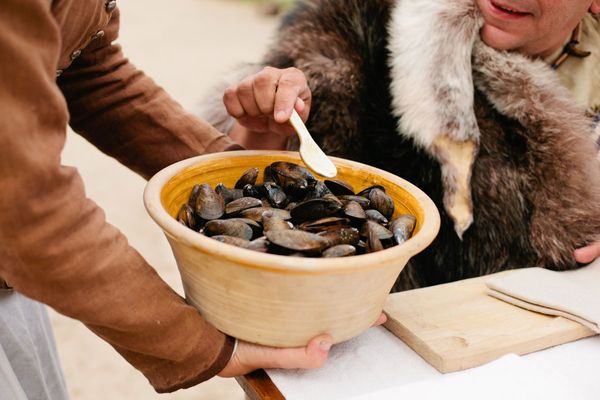
"Some folks recognize and celebrate Thanksgiving in my community (Aquinnah),” he said. “Others do so without the attached historical concepts and events and spend time among family and harvest foods. While others choose not to celebrate it at all and instead choose to mourn, acknowledge our lost ancestors and sovereignty and work toward collective action that will result in a better future for Native folks and the rest of the world."
Whether or not you are Native, Lopes said there are ways for all Americans to further decolonize the holiday. He recommends starting by supporting the tribal nations in your area, such as Native American Lifelines in Boston, looking into land back initiatives and land conservancy, like the Native Land Conservancy, and supporting indigenous-owned and operated nonprofits and businesses, like the Aquinnah Cultural Center.
He also recommends buying directly from indigenous creators and families (Red Rock Designs, IndigenoUS, Ockway Bay Wampum, Redtail Boutique and NoLooseBraids are some of his recommended vendors) and supporting indigenous food sovereignty efforts.
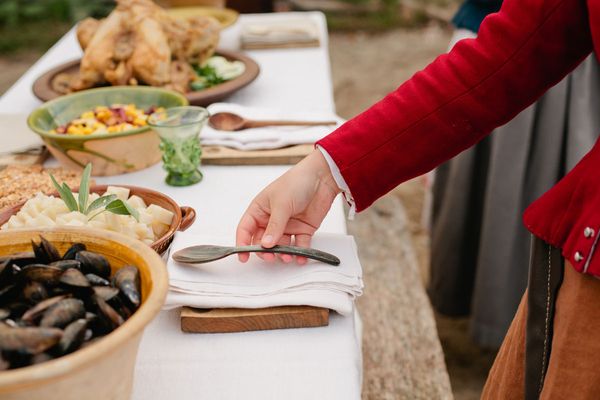
Many of the items that are considered traditional for Thanksgiving — including mashed potatoes and pies —weren’t present during the original meal, which likely included items like corn, beans and venison, items that Lopes describes as the “"backbone of the Wampoanog diet" in the winter months. If you're looking to incorporate other ingredients, dishes or staples into your traditional Thanksgiving meal, Lopes recommends honoring the harvest foods in your community or region.
For many in the Wampanoag community, that means the aforementioned corn, beans, squash and venison. It also means recognizing other harvest foods, such as sunflowers, Jerusalem artichoke, raspberries, wild onions, sassafras, tubers and nuts, plus various types of shellfish. For preparation ideas, try the “Cape Cod Wampanoag Cookbook: Wampanoag Indian Recipes, Images & Lore” by Earl Mills and Betty Breen, or visit Sly Fox Den Too, a restaurant serving authentic Northeast Indigenous cuisine created by James Beard Award-winning Chef Sherry Pocknett.
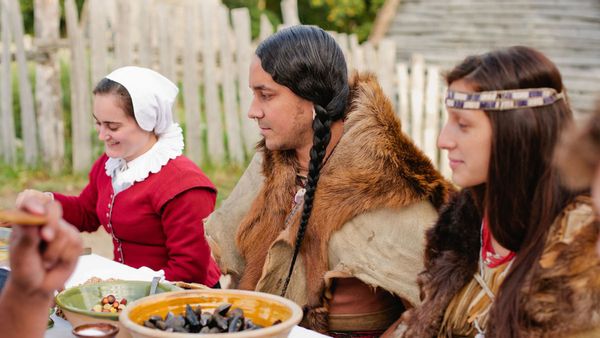
Stepping away from the table, Lopes is also motivated by "moving beyond the concept of gratitude" for Native people, instead toward the concept of reciprocity. "Our entire world and by extension even our language, is reciprocal in nature. Everything is in relation with one another and therefore has an impact,” he said. In addition to expressing gratitude, Lopes notes that this also means "upholding the responsibilities we have to these relations in whatever way might be necessary."
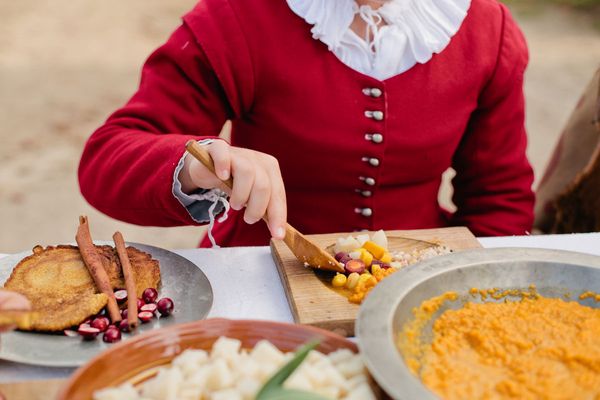
“We are responsible to our mother, to the land and her waterways,” Lopes said. “For us to partake in her gifts, we need to ensure we do so with respect, caring and the goal of working towards cultural perpetuity.”
This, he says, is what grounds the Wampanoag and is their driving force, both in the past and to this day.







